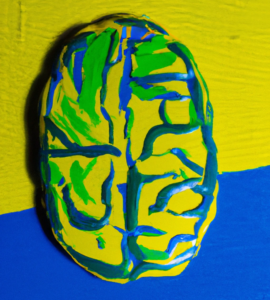Generative Creativity Is Anything But Common Goings-on
Not even one year ago, as the world slept, unaware ( except for a small group, relativistically ) of behind the scenes specialists, a 50yr race was running one of it’s final relay sections. R&D Lab efforts unknown to most was about to break through it’s shell where previously, the idea that Innovation Doesn’t Have A Creativity Problem ; It’s Got A Commitment Problem assumed that creativity was once like R&D ( a capability of a specific number of people, with advanced equipment ) was the case, but that with focus, creativity could be accessed by many. That however was all about to change.
Little did the world know, we would soon all have a capability in our hands in no short time that would radically up-end the idea of even the thought of ownership and now it seems Generative AI Has an Intellectual Property Problem where creativity is instantaneous and editable. Gone are the notions of years of graduate school necessary to hone the capability of creativity, but more, the capability to manifest it via highly specific technological tools, etc,. now leading us to a new torture: the legal and ethical challenges posed by generative AI, stemming from content based on existing data scraped from the web for free. Now, with Generative AI the disruption of the design world ( an AI enabling faster and more diverse creation of images, text, and other forms of expression ) is right on top of us all.
Can AI platform uses photos from a licensing service without permission to generate new images, violating the service’s rights and expose itself and its users to legal action? Could it even be proven via some yet unknown reverse engineering of Ai created images to show their relevance to existing works, if those works could even be found and proven related? With AI platform and systems generating images resembling a famous painting or a brand logo, while it may infringe on the rights of the artist or the company that owns them could it even be that an artist or creator would even have the capability, let alone raw cash to mount such a lawsuit? Chances are no. There are the ideas of the fair use doctrine, if it is even possible to say that a new work is a criticism, comment, education, or research, but worse that as we all know, once it is on the web, the chances of ever having it taken down, not to mention again, the cost means that Generative Ai is the ever morphing digital noose that has no chance of ever being stopped thanks to in fact search engines. The noose tightens.
Creators, designers, architects, engineers then are faced with transparency and accountability for generative AI platforms but again, could the costs to even mount a case where designers and developers must prove license and compensation for content creators used to train their models, and maintain provenance records of the AI-generated works that include information about the platform, settings, seed data, metadata, and prompt even be possible? Unlikely. Confidential data, trade secrets, personal information and even within the context of millimeter by millimeter exact copies of works, functionalities and even family photos used on the packaging ( as in the incredibly famous X-IT vs. Kiddy case – an open and shut situation that took 20yrs to come to court with a $116M judgement knocked down to $17M in final payout ) means Ai and Generative art are not only untraceable but even less protectable. The raw power and capability of Ai Generative art and nano-second publishing means an unlimited zeitgeist fire hose of power can be wielded and for which no laws can even begin to contain said capability. The 10,000b gorilla Genii is out of the bottle and now there is nothing that can ever contain it again.






































